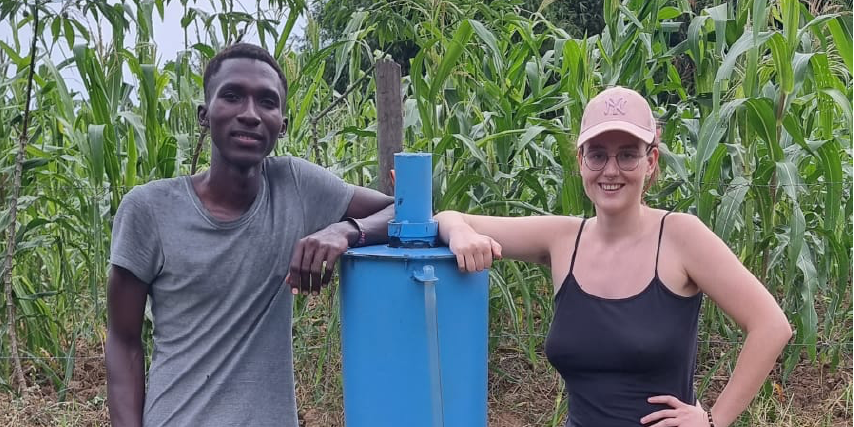Biogas Pasteurisation Prototype Produced in Kisumu, Kenya
Prof. Elizabeth Tilley's research team developed a pasteurisation unit for a biogas reactor powered by the biogas itself in Kisumu, Kenya

Funded by an ETH4D Pilot Grant, a team led by Chair of Global Health Engineering Prof. Elizabeth Tilley has installed a biogas reactor in a community in Kisumu, Kenya to develop a new pasteurisation unit for the system's effluent waste. Biogas reactors digest organic matter, such as agricultural waste or manure, to produce a gas that can be used as fuel for such activities as cooking and heating. The reactor in Kisumu, supplied by Sistema.bio and installed by the ETH team, is one of the first to process human excretia.
The group used this reactor as a test ground for creating a method to kill pathogens in the system's effluent powered by the biogas itself. Initially, the amount of biogas produced by the reactor was insufficient to power the pasteurisation. The researchers were able to significantly increase the biogas production by adding a slurry of organic waste, sourced from the local market and ground with water, to the excretia being fed into the system.
The group also improved upon the pasteuriser design. Key among the improvements were a more turbulent up flow section (for better heat mixing) and an improved burner, as well as design for increased access to the pipes and values for cleaning.
The reactor and pasteuriser prototypes are still in place in Kisumu, and are operated by Kenyan engineering firm Opero, who served as partners throughout the research.